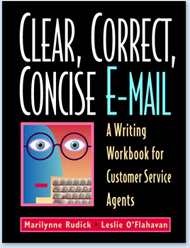On a typical day, most customers will understand what you mean even if you use less-than-graceful words when you speak or write. For example, lots of customers dislike the phrase “No problem!” but they’ll look past it if you’re providing great service. They’ll give you a pass on “No problem!”
But these aren’t typical days. The usual customer service phrases can make your anxious customers even less patient and more emotional. These phrases can also make your company seem clueless. In these pandemic days, can you imagine an outbound call center agent starting a phone call with “Is now a good time?” That’s just oblivious.
Here’s a list of six customer service phrases your team should probably avoid. I’ve offered replacements that won’t leave you open to that “You’ve got to be kidding me” response.
1. We regret any inconvenience this may have caused.
This wording is generic and dismissive. The word “any” suggests you don’t know what the inconvenience was, but you do. The customer has explained what made them unhappy. The words “may have” dismiss the customer’s complaint by implying that it “may have” happened when—from the customer’s perspective—it did happen.
When people are stressed, their need for recognition and dignity grows. We can give them this dignity if we apologize sincerely. So name the inconvenience specifically and stop hinting that it didn’t happen:
- I’m sorry this item is on backorder and you won’t be able to purchase it for a wedding gift, as you’d planned.
- We’re sorry you had to contact us twice to request a correction to your loyalty points balance.
2. We’ll share your feedback with the appropriate department.
In customer service, we are often presented with customers’ complaints about things we cannot (or don’t want to) change. In the coronavirus era, this is truer than ever. There is SO much we simply cannot change. That’s why our offer to share customers’ feedback with the department that will record it and may act on it in the future is so important. This offer to share feedback demonstrates that we’re listening and we care.
But you can’t demonstrate you care without at least naming the department! And if you really want this phrase to resonate, state what the department will do with the feedback, too. Like this:
- We’ll share your feedback about our toothpaste with our Product Development department, so they can consider it when they develop new flavors.
- I’ll share your comments about our app with our eServices team who can address the glitches you’ve been experiencing.
3. [Insert topic] is extremely important to us.
Many companies use this phrase in a patently ridiculous fashion. If a customer complains that an item they purchased online was delivered late, the company responds, “On-time delivery is extremely important to us.” If a customer says, “There was a big long hair in my freshly opened jar of peanut butter,” the company replies, “Food safety is extremely important to us.”
I understand why companies respond this way. They want to assure customers that the problem they’ve experienced is an anomaly. However, it’s infuriating to be told that an airline considers on-time departure extremely important, for example, when your flight was delayed three hours while the maintenance crew replaced a cockpit lightbulb.
When so much is out of control in customers’ lives, it’s difficult for them to accept a company’s insistence that something is extremely important when it didn’t happen. Here’s what you could write instead:
- Food safety is so important to us and to our customers, so we’re really disturbed to learn you found a hair in your jar of peanut butter.
- We know our passengers expect us to depart and arrive on time, so we’re truly sorry about the mechanical problem that delayed your flight #123 last Tuesday.
4. Our records show…
When you have an opportunity to assure customers you’ve checked their records and you’re providing current, accurate information, don’t let that opportunity slip by! You can calm a worried customer if you use use personal, active wording, like this:
- I’ve reviewed our records, and I see …
- I’ve looked at your online account to confirm…
- I checked our records, and I discovered that we have two different postal addresses on file for you…
5. As per your request…
This is chilly, bureaucratic wording and no one turns to a chilly bureaucrat for comfort. You wouldn’t “as per” the customer in person or on the phone, so please don’t “as per” them in writing. Instead, write “As you’ve requested…”
6. Is there anything else I can help you with today?
Too often, customer service agents ask this question as a toss-off—something they say when they believe they’ve helped the customer and they’re ready to end the conversation.
But these days, people’s hearts are heavy and their lives have been upended. When we ask “Is there anything else I can help you with today?” we should expect some of them to reply, “I wish you could help me find a job” or “Well, I could use some help with the rent, hahaha…” or “My mother is sick…”
We must prepare frontline agents to respond with empathy in these situations, however scary or uncertain that may feel. We must encourage them to say, “I am going to keep a good thought for your mother and for your whole family. You must be very concerned about her.” And we’ll have to give agents extra time for each call and email. Being real takes time.
The coronavirus pandemic has brought so much hardship to us, but it might also bring out the best in us. We can communicate with customers in a sincere, personal style. Let’s control what we can control. Let’s build connection in every word we share.
Tags: Chat, Customer service, Customer Service Writing, email, Plain language, Social media







Thank you for this excellent and timely article. Everyone is dealing with great challenges, and now more than ever it is important to be kind. I appreciate the practical language you suggest to acknowledge that this is not business as usual.
And thank you for your comment, Sheryl. I completely agree with what you said about being kind. It’s so important now, and it’s not more costly for a company. Kindness is do-able and necessary.
Leslie, your article arrives just in time. Transitioning to an offsite, largely unsupervised home work environment has left this manager with less control over service. Your guidance and specific language will help improve communication, and more importantly, will keep our end users feeling connected to agents they can no longer see. It will be the main topic for our team meeting this week!
Hello, Kristin – Thanks so much for letting me know that you’ll be using my article as the main topic for your team meeting. That’s great! I’m happy to be of help in these hectic days of transition to remote work. Are there any other writing-related topics you’d like me to cover? Just let me know.
Such a helpful article. I am a CSR and daily I come across callers that, more than having their issue resolved, just want to talk. I try to give them the time and empathy they need. It’s comforting to know I have made someone feel better. In turn, the majority offer wonderful feedback to me. It’s a win/win.
Hello, Lee –
Thanks very much for your comment. I’m thrilled to know that you found my article helpful. Your openness to listening to your customers is moving, and it’s not a bit surprising that you find being empathetic to them a win/win. How wonderful!